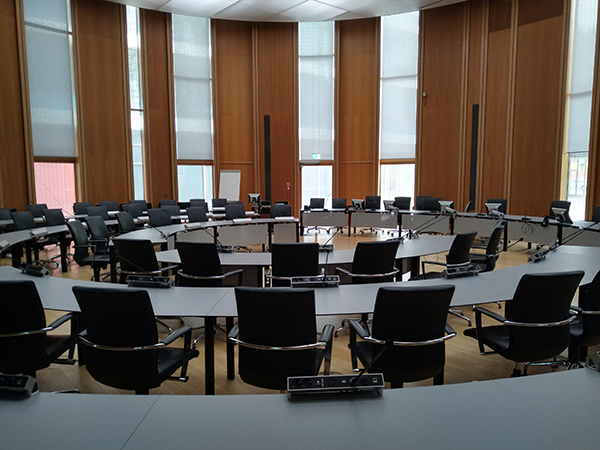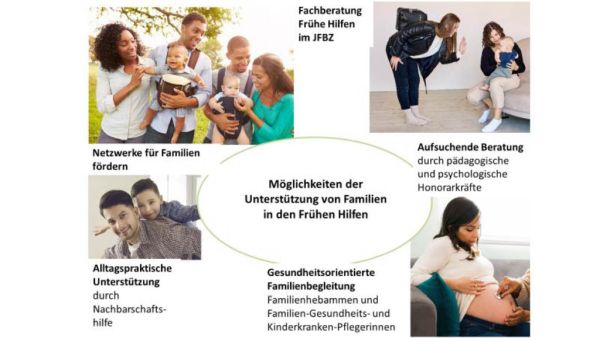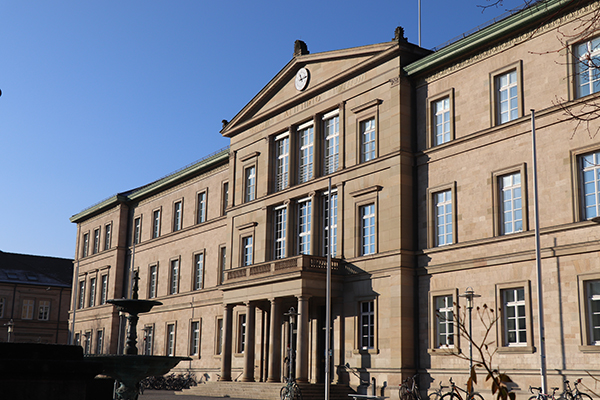Survival
“I could understand their fear well”
By Ute Kaiser
“I hope you have never experienced anything like this,” said Ali*. 16 fourth graders of the Pfrondorf Primary School looked on, concerned. Ali, Oula and their daughters Roula and Sara from the tünews team told the children about their home in Syria and the story of their escape for almost two hours in December. 4a had chosen this topic for a newspaper project (see info). Pictures from the Internet and private photos showed the children how beautiful the Syrian cities looked before the war.
“Why did you flee?”, moderator Natalie Hekmat asked. When the war started in Syria in 2011, Roula, now 17, was still a child. She knew nothing about politics but understood that her hometown Damascus was no longer safe: “Missiles, explosions, destroyed schools.” Roula’s parents decided to flee with their five children to a country where they can live in peace.
Ali, now 31 years old, studied in the Syrian port city of Latakia. After graduation, he would have had to join the military. But: “I didn’t want to kill anyone, and I didn’t want to be killed.” That’s why he fled. His parents and siblings held out at first.
Oula’s family brought almost no memorabilia. A children’s dress by Sara, Roula’s diary, 10 Syrian lira, a heating foil and the keys to her apartment, which has long since been bombed, fit into a small box. Sara calls it her treasure chest.
In Turkey Ali tried unsuccessfully to start a new life. Since he had “nothing to lose”, he decided to leave. The flight led from Izmir across the sea to Greece, then on foot across the Balkans to Germany. His travel bag was lost on the way. When he arrived in Germany, the clothes he was wearing were “completely destroyed”.
Escape for Oula’s family via Egypt, Libya and the Mediterranean to Italy was tough. Armed aid workers threatened to shoot anyone who did not follow their orders. The worst thing for Oula was that she was stuck on a boat with more than 350 refugees, separated from her two daughters. The mother suffered for 14 hours. That’s how long the crossing took.
I didn’t want to kill anyone and I didn’t want to be killed.
“Thank God I was alone,” said Ali. Because the smugglers tortured families even more. His way was dangerous too. At one point, he and others had to cross a stream. Tree branches couldn’t bear enough weight, so men threw the children from one bank to the other. The fourth graders were speechless.
After arriving in Germany, Ali had “mixed feelings”. He enjoyed the security but was also concerned about his professional future. The most important thing for Oula after the escape was “that I finally had enough food for my children” and that the family was no longer at risk. For this, she accepted the cramped life in the emergency housing—a sports hall. While Roula “spent the first few months with nightmares”, Sara was happy: “I could go to kindergarten and play.” A video showed how well she had learned German after only a few months.
The moderator asked 4a for feedback. “I found it sad that refugees had to experience such bad things,” wrote one child. Another felt the conversation as “very great”: “I could understand their fear well.” This answer was also full of sympathy: “Sad, horrified, uncomfortable, because I had it all my life so well.”
*Name changed.



